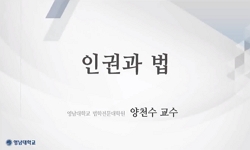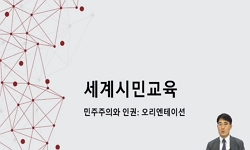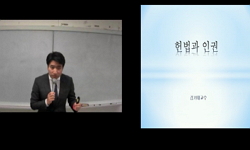이 논문은 한국의 다문화 정책에 대한 심층적 설명과 정치적 분석을 제공하려고 한다. ‘multiculturalism’으로 영역될 수 있는 다문화주의는 한국 정부가 외국인을 한국사회에 통합시키려는 ...
http://chineseinput.net/에서 pinyin(병음)방식으로 중국어를 변환할 수 있습니다.
변환된 중국어를 복사하여 사용하시면 됩니다.
- 中文 을 입력하시려면 zhongwen을 입력하시고 space를누르시면됩니다.
- 北京 을 입력하시려면 beijing을 입력하시고 space를 누르시면 됩니다.
한국의 다문화주의 추구에 대한 재검토The Quest for Multiculturalism in South Korea = The Quest for Multiculturalism in South Korea
한글로보기https://www.riss.kr/link?id=A106139156
- 저자
- 발행기관
- 학술지명
- 권호사항
-
발행연도
2019
-
작성언어
Korean
-
주제어
다문화주의 ; 다문화 ; 민족주의 ; 역사 ; 동화 ; 인권 ; Multiculturalism ; damunhwa ; nationalism ; history ; assimilation ; human rights
-
KDC
360
-
자료형태
학술저널
-
수록면
241-285(45쪽)
- 제공처
- 소장기관
-
0
상세조회 -
0
다운로드
부가정보
국문 초록 (Abstract)
이 논문은 한국의 다문화 정책에 대한 심층적 설명과 정치적 분석을 제공하려고 한다. ‘multiculturalism’으로 영역될 수 있는 다문화주의는 한국 정부가 외국인을 한국사회에 통합시키려는 정책으로 현재 규정되어있다. 현재 한국은 전인구의 97%가 한국인으로 알려져 있을 정도로 세계에서 두번째로 민족적 동질성이 높은 국가로 분류되어 있다. 이 논문의 목적은 다문화 정책을 통해 한국에서 민족 계보 모델에서 시민 영토 모델로 전환하려는 정부의 시도에도 불구하고, 본 논문은 정부 후원의 다문화주의가 결국은 한국인과 현재 한국에 거주하고 있는 외국인 사이의 거리를 더 멀어지게만 했다는 것을 주장하는 것이다. 분석방법으로는 한국과 다른 국가에서 민족주의가 어떻게 발생할 수 있고 또한 어떻게 발생했는지에 대한 분석을 기반으로 하여 다문화 사고의 토대를 마련하고 다문화주의의 주류 이론을 설명할 것이다. 한국은 1,000년 동안 정치적, 언어적, 지리적 연속성에도 불구하고 - 일반인들이 믿고 있는 것과 달리 - 민족적 동질성의 의미는 최근 20세기 초에 들어서야 뿌리를 내렸다. 당시 일제 치하에서 일본 동화정책의 일환으로 한국과 일본인의 동일 기원설을 주장할 시기였다. 그러나 동일 기원설을 주장하면서도, 한국인은 항상 문화적으로 일본인에게 종속되어 있고 그러기에 한국 이름을 일본이 름으로 바꾸고 일본어만 사용하는 것이 한국 사회에게 큰 이익이 된다고 지적했다.따라서 한국인은 개인의 명예를 지키기 위해서, 한국의 차별성과 순수 성을 주장하기 시작했다. 그러나 본 논문은, 한국의 민족주의가 처음에는 제국주의자의 억압과 싸우기 위한 전술로 시작했지만, 결국은 후에 독재 지도자 이승만과 박정희의 통치 기간 동안 어떻게 정치적 도구로 변모했는지를 보여줄 것이다. 한국에서 민족주의의 형성 및 보급에 대한 이 논문 분석을 통해 현재 한국의 다문화 정책이 직면하고 있는 문제의 성격과 범위를 조명하기를 희망 한다. 또한 한국의 사회적 화합을 위한 길을 걷기 위해 지역적 믿음과 교육 절차에 대한 재검토가 필요하다는 것을 증명하기를 바란다.
다국어 초록 (Multilingual Abstract)
This paper will attempt to explain the Damunhwa policy in South Korea. Damunhwa, which can be translated in multiculturalism, is the current prescribed policy of the South Korean government for incorporating foreigners into their society, which curren...
This paper will attempt to explain the Damunhwa policy in South Korea. Damunhwa, which can be translated in multiculturalism, is the current prescribed policy of the South Korean government for incorporating foreigners into their society, which currently stands as the second most ethnically homogenous country in the world (second to North Korea) with 97% of their population identifying as ethnic Korean. Despite government-based attempts to establish a transition in South Korea from an ethnic-genealogical model to a civic territorial model via the Damunhwa policies, this paper will argue that these government-sponsored attempts have proved to have only furthered the distance between the Korean population and foreigners currently living in the country. In doing so, this study will look at theories of how nationalism arose in society, both in a global and a Korean context. As far is South Korea is concerned, despite 1,000 years of political, linguistic, and geographic continuity - and contrary to popular belief - this sense of ethnic homogeneity took root only in the early 20th century. It was then under Japanese colonial rule that the Japanese assimilation policy claimed that Koreans and Japanese were of common origin. Despite being of common origin however, the policy also pointed out that the Koreans would always be subordinate to their Japanese counterparts culturally and thus it was in the best interest of Korean society to change Korean names into Japanese, and to exclusively use the Japanese language. In order to defend their honor as individuals, Koreans accordingly began to assert the distinctiveness and purity of the Korean nation. This study will show that the situations for other nations was no less different in that ethnic nationalism in other contexts only really took hold within the last hundred years or so. Other global examples that will be cited in this study will ultimately be used to prove that there is indeed a road to societal harmony in South Korea, but it might require Korean citizens overcoming some particularly embedded beliefs and ideals regarding Korean identity.
목차 (Table of Contents)
- Ⅰ. Introduction Ⅱ. Literature Review Ⅲ. Sources for South Korean Ethnic Nationalism Ⅳ. Background for South Korea’s Current Migration Landscape Ⅴ. Damunhwa: South Korea’s Multiculturalism Laws and Multicultural Education Ⅵ. Conclusion
- Ⅰ. Introduction Ⅱ. Literature Review Ⅲ. Sources for South Korean Ethnic Nationalism Ⅳ. Background for South Korea’s Current Migration Landscape Ⅴ. Damunhwa: South Korea’s Multiculturalism Laws and Multicultural Education Ⅵ. Conclusion
동일학술지(권/호) 다른 논문
-
- 전남대학교 공익인권법센터
- 이경미(Lee, Gyeong-mi)
- 2019
-
- 전남대학교 공익인권법센터
- 박복순(Bok-soon Park)
- 2019
-
- 전남대학교 공익인권법센터
- 여경수(Yeo, Gyeong-Su)
- 2019
-
“돌아가지 않을 자들” - 1869-1900년대 말라카 해협식민지 정착민들의 사례 -
- 전남대학교 공익인권법센터
- 에드워드 Y.F. 탄*(Edward Y. F. Tan)
- 2019





 스콜라
스콜라







